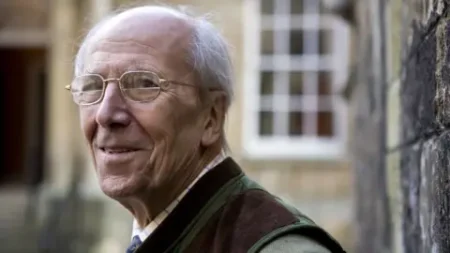In recent political developments, a significant rift is emerging within the Labour Party regarding the government’s proposed changes to welfare benefits. The growing dissent is evident as a notable number of Labour MPs, exceeding 130, have lent their support to an amendment that opposes the government’s plans to cut benefits aimed at individuals with disabilities and those experiencing illness. This initiative is primarily motivated by an intention to save £5 billion annually by the year 2030, a financial objective that has sparked fierce debate.
Of the MPs in agreement with this amendment, around 120 identify as Labour representatives. This coordinated action comes in response to attempts made by government ministers, including notable cabinet figures, who have been proactively reaching out to backbench Labour MPs. These ministers are urging them to withdraw their support for the amendment. As of now, only Samantha Niblett has officially rescinded her name from the list. The situation reflects a growing concern within the Labour ranks about the implications of the government’s welfare reform proposals.
Sir Keir Starmer, the leader of the Labour Party, has made it clear that he intends to forge ahead with the welfare reforms, which many within his party now seem to oppose vigorously. The internal divide highlights a predicament for Starmer, as he must navigate the complexities of maintaining party unity while adhering to a reform agenda perceived by some as detrimental to vulnerable communities.
Among those who have backed the amendment are newer MPs elected during the 2024 intake, as well as seasoned politicians who served before Labour’s resounding electoral victory. Two notable figures among the supporters include John McDonnell and Andrew Gwynne, both of whom are currently suspended from the party but remain aligned with the opposition against the government’s welfare strategy. Additionally, the list of supporters encompasses members from Northern Ireland’s political factions, demonstrating a broader political coalition against the welfare cuts.
Amidst these developments, senior cabinet ministers, such as Chancellor Rachel Reeves and Health Secretary Wes Streeting, are reported to have made calls to convince signatories of the amendment to reconsider their positions. These outreach efforts highlight the government’s awareness of the potential risks associated with the discontent brewing within Labour, as cabinet members reportedly express concern that this growing dissent could escalate into a larger crisis for Starmer’s leadership.
The urgency of the situation is underscored by the fact that Parliament is slated to vote on these welfare reforms shortly. The decision of whether the specific amendment will be put to a vote lies with the Speaker of the House of Commons, Sir Lindsay Hoyle, who currently must weigh the increasing participation of MPs from various parties, including the SDLP and the DUP, who have joined the growing list of opponents to the reforms.
The proposed legislation, officially dubbed the Universal Credit and Personal Independence Payment Bill, is crafted with intentions to impose stricter regulations on how disabled individuals with less severe conditions can qualify for benefits, specifically the personal independence payment (PIP). Starmer, in a recent statement, reiterated his commitment to pressing forward with these reforms, which he argues are necessary due to the unsustainable expenses the current welfare system incurs on taxpayers and the notion that it often “traps” beneficiaries within the system itself.
As the Labour Party grapples with this internal contradiction—an alignment of MPs against reforms proposed by their own leader—the broader implications of the forthcoming vote remain to be seen. It not only reflects on the dynamics within Labour but also shapes the potential future of welfare legislation in the UK, with many constituents watching closely as this political saga unfolds.











